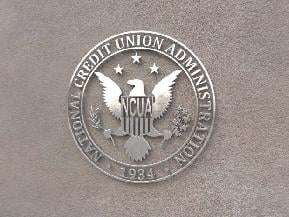Western Corporate Federal Credit Union President/CEO Phillip Perkins took the league stage for the first time the morning of Nov. 18, joining other high-profile industry leaders for a general session to discuss the future of the credit union movement. He challenged California and Nevada credit unions to determine whether corporates are worth the expense when he joined other high-profile industry leaders to discuss the future of the movement. “With or without WesCorp, you’ll move on,” Perkins said. He lauded the industry’s cooperative nature, saying the cooperation of WesCorp members kept deposits in the failed corporate, saving the industry billions by allowing bad investments to be held to maturity or recovery. The cooperative nature of credit unions is “one of our greatest strengths,” the former investment banker said and “should be preserved at all costs.” “We define ourselves as a movement, having something larger than the sum of our individual parts,” he said, “and there’s something very special about that.” Evaluating corporate options is time consuming and expensive, he said. However, credit unions must consider the question and research alternatives both thoroughly and quickly. WesCorp will help members determine the corporate’s value for members, he added. Frank Sarnquist, a director at the $1 billion Stanford Federal Credit Union, said his institution is a member of WesCorp and “lost a lot of members’ money” when the corporate depleted 100% of its member capital earlier this year. Sarnquist said Perkins’ speech didn’t sway his opinion on WesCorp one way or the other. Rather, until he learns more about the alternatives to corporate credit unions, he couldn’t say whether his credit union will remain with WesCorp or switch to other providers. Perkins was joined on stage by league panelists CUDL’s Tony Boutelle, CO-OP Financial Services’ Stan Hollen, Financial Services Centers Cooperatives’ Sarah Canepa Bang and Bob Trunzo from CUNA Mutual. Boutelle said car sales are expected to increase in 2010, about 10%. That will cause credit union auto lending to “trend back up,” he said. Despite slow auto sales this year, CUDL will nonetheless return a dividend to members for 2009. “It’s been a tough year, but we did achieve some profitability,” he said. Perhaps as a result of NCUA criticism regarding indirect lending losses, Boutelle said CUDL is “focused on serving existing credit union members,” capturing members before they reach the dealership. He also said the CUSO has “developed new income strategies for credit unions.” –[email protected]
 Search
Search














 Copyright © 2025 ALM Global, LLC. All Rights Reserved.
Copyright © 2025 ALM Global, LLC. All Rights Reserved.